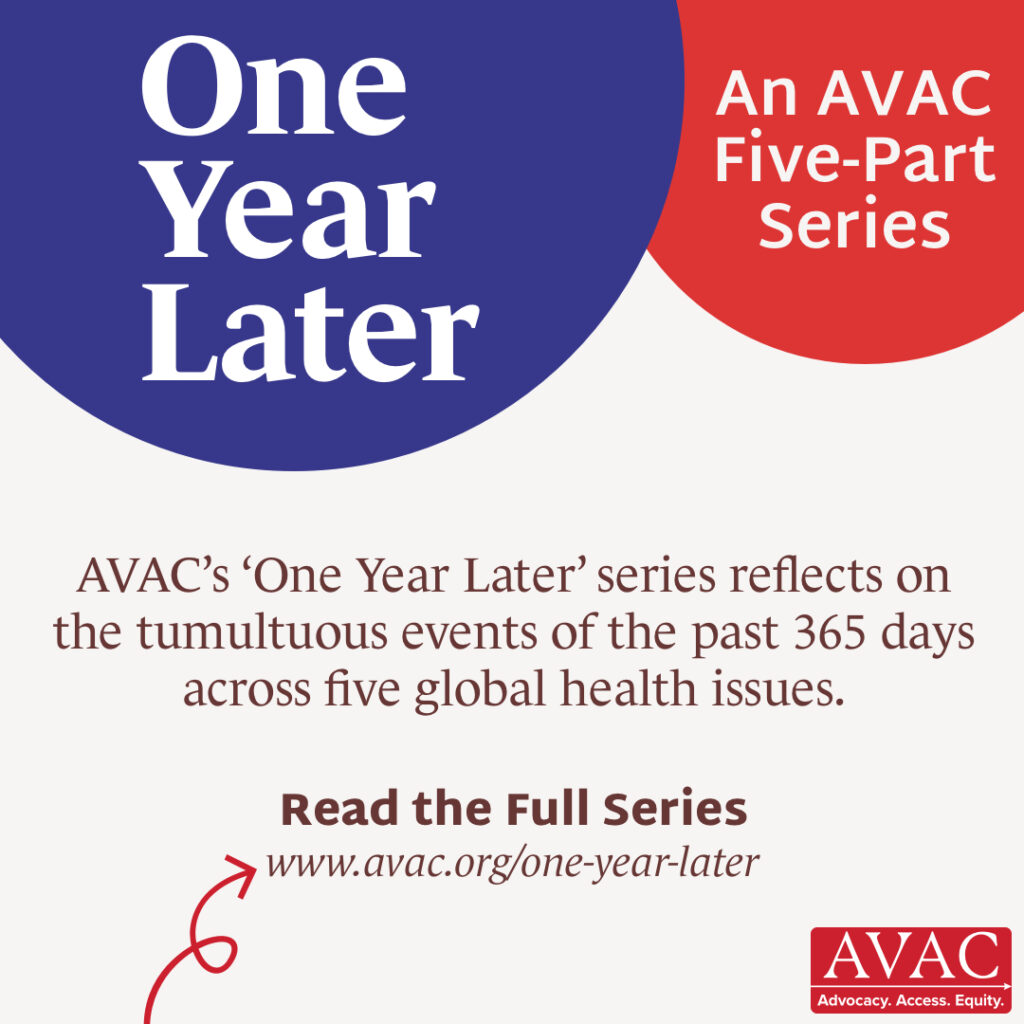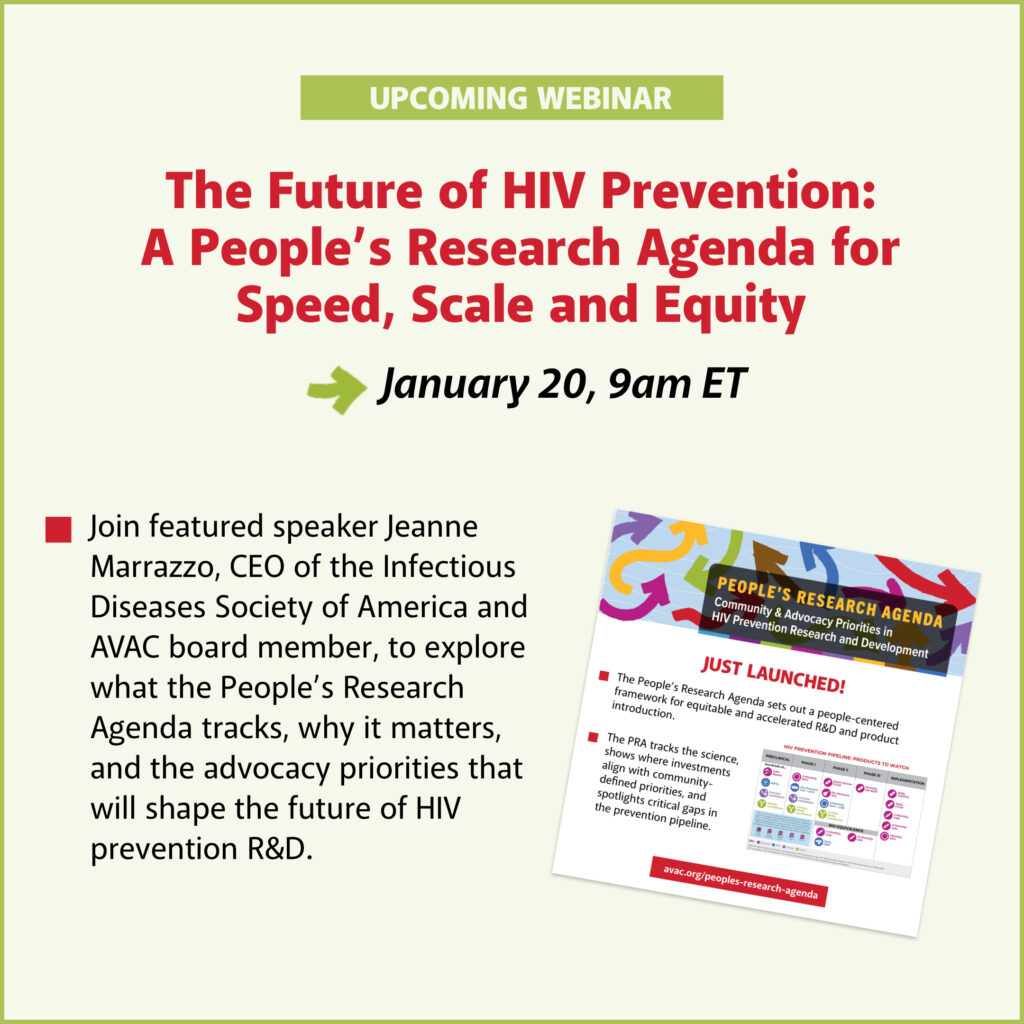“The last year has been one of chaos, anger, panic, and frustration. I think the coming year has to be one of strategic rebuilding and building something different—not building back but building forward. That means a different architecture at the country level, community level, regional level, and global level. A year from now, I suspect we’ll see fewer acronyms, but hopefully the ones that remain will be stronger than ever.” —AVAC’s Mitchell Warren, Bhekisisa podcast
This week marks one year since the US Presidential Administration issued a deeply cruel executive order freezing foreign assistance, halting billions of dollars in already-approved funding under the bad-faith claim of a “90-day review”. What followed was not a brief pause, but a drawn-out, chaotic disruption that stopped life-saving work across the globe, shutting down valuable organizations, and harming lives, health, and livelihoods. And that was just the beginning of a year of chaos.

To mark this moment, AVAC’s One Year Later series reflects on the impact of the past 365 days on five key areas of global health and development:
- The erosion of US foreign aid
- The assault on vaccine science and policy
- The dismantling of the research enterprise
- The cruel irony of funding cuts in the context of the breakthrough technology of long-acting lenacapavir for PrEP
- The profound shifts underway in global health architecture
These pieces show how the field navigated a year defined by disruption and resilience—and how policy decisions reverberate through science, programs, and communities.
The year has been a profoundly transformative one for AVAC. The Devex in-depth retrospective, Fighting for Billions: The legal battle to keep US foreign aid alive, chronicles the ongoing lawsuits brought by AVAC, the Global Health Council and partners challenging the foreign aid freeze. The piece highlights how legal action became a critical line of defense against the dismantling of lifesaving programs and why the outcome still matters.
“For me, the best message I can say is a year later, we as a community are still standing. And that is a resilience in its own right. We are going to succeed in global health and development. Not because of what happened in the last year, but in spite of it.” —AVAC’s executive director Mitchell Warren on Bhekisisa’s new podcast, One year after Trump: The day HIV funding changed forever—and what came next
As Jeanne Marrazzo, the new CEO of the Infectious Diseases Society of America (IDSA) shared on our webinar earlier this week showcasing the 2025 update of the People’s Research Agenda (PRA), “We cannot yell it from the rooftops loud enough that new infections are going to rise and undermine efforts to end AIDS as a public health threat. But this is not a time to despair. It’s a time to fight. It’s a time to dig in and recognize not just what we’ve accomplished and why we need to protect that, but why we need to continue to move forward.” See the recording here and learn more about the PRA, which tracks the science, highlights where investments align—or fail to align—with community priorities and identifies critical gaps that must be addressed to ensure the prevention pipeline meets the needs of diverse populations.
The past year has reshaped global health—and AVAC—in ways that will be felt for years to come. The events of the past year also show that advocacy, evidence, and community leadership matter. Some courts provided the necessary check on power; advocates rallied; and scientists and civil society raised their voices and documented what was lost—and what must be protected (see 24 Hours to Save AIDS Research).
With your support, AVAC’s weekly Global Health Watch newsletter, now in its 52nd week, continues to track what happens, elevate what’s at risk, and help all of us navigate what comes next. Thank you to our community which stops at nothing to safeguard hard-won progress against HIV and in advancing global health equity.

